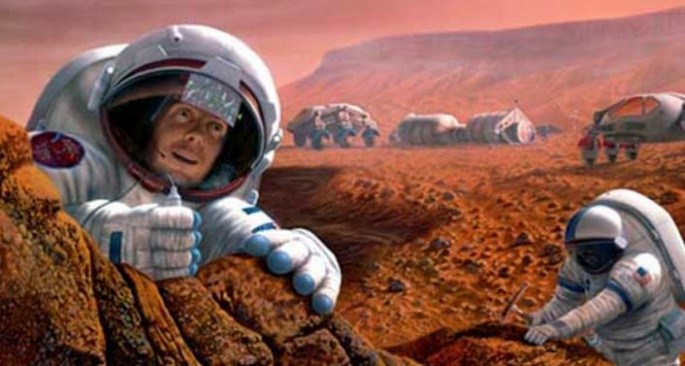Astronauts making the six month-long voyage to Mars starting the next decade will face the crippling prospect of having shrunken spinal muscles.
A new study by researchers from the University of California, San Diego also discovered the muscles don't return to normal even after astronauts are back on Earth for several weeks. There were, however, no changes in astronauts' spinal disc height, according to the study.
Researchers assessed six NASA astronauts who spent four to seven months on the International Space Station (ISS). The researchers said the study offered new insights into increased rates of back pain and spinal disc disease among astronauts on long space missions.
"These findings run counter to the current scientific thinking about the effects of microgravity on disc swelling," said study author Dr. Douglas Chang, an associate professor of orthopedic surgery and chief of physical medicine and rehabilitation service at UC San Diego Health
"Further studies will be needed to clarify the effects on disc height, and determine whether they contribute to the increase in body height during space missions, and to the increased risk of herniated discs.
"However, it's information like this that could provide helpful information needed to support longer space missions, such as a manned mission to Mars."
Chang said the results suggest possible ways to reduce the effects of spaceflight on the spine. For example, core-strengthening exercises recommended for patients with back pain might benefit astronauts in training. Yoga might also help counter spinal stiffness and reduced mobility
The findings were published Oct. 25 in the journal Spine.
The effect of prolonged weightlessness on the spinal muscles is one more worry for astronauts that dare venture out on prolonged space voyages. "Space brain" is another danger.
University of California, Irvine scientists probing a phenomenon called "space brain" found exposure to highly energetic charged particles -- much like those found in the galactic cosmic rays that will bombard astronauts during extended spaceflights -- caused significant long-term brain damage in test rodents, resulting in cognitive impairments and dementia.
Exposure to these particles can lead to a range of potential central nervous system complications that can occur during and persist long after actual space travel such as various performance decrements, memory deficits, anxiety, depression and impaired decision-making. Many of these adverse consequences to cognition may continue and progress throughout life.



























